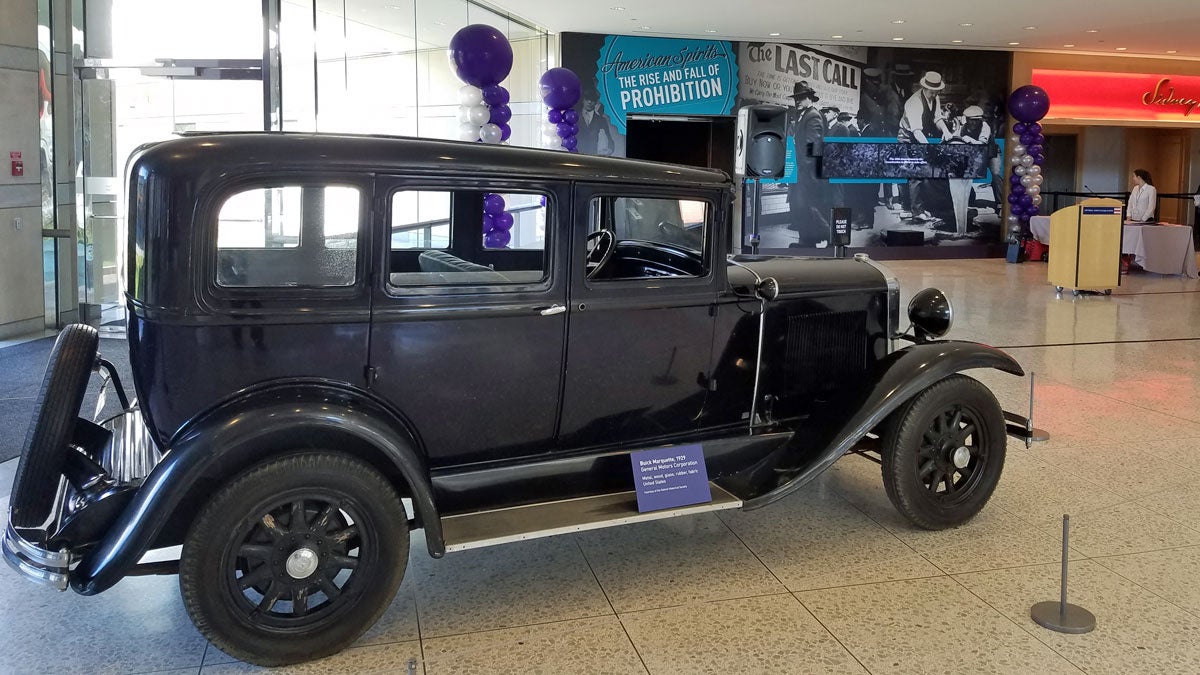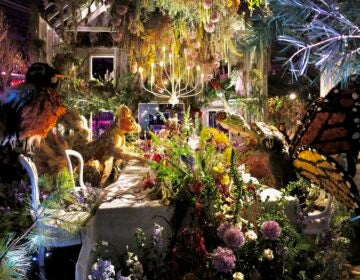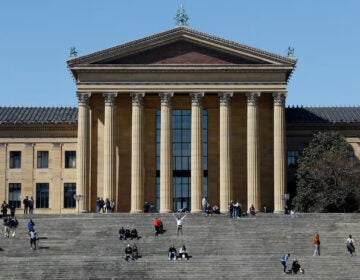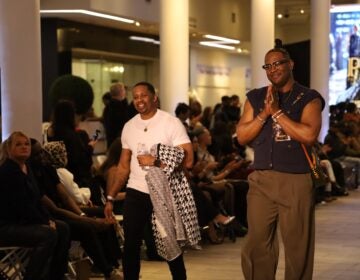National Constitution Center brings back its Prohibition exhibit

Part of the exhibit American Spirits at the National Constitution Center. (Peter Crimmins/WHYY)
One more for the road.
The National Constitution Center is re-staging its exhibition, “American Spirits: the Rise and Fall of Prohibition,” just three years after it debuted in 2014.
The show — about the complex social and legislative maneuvering that passed the 18th Amendment banning alcohol in the United States — proved to be a hit for the museum, both in Philadelphia and in cities around the country where it has traveled.
“Hundreds of thousands of people have seen this across the country at all the different venues,” said exhibition manger Sarah Winski.
“The industry standard for time spent in an exhibit is 23 minutes. And that’s for any sized exhibit, from a small gallery room to a huge hall — it’s just the average,” she said. “This exhibit is about triple that. People spend almost an hour in this exhibit, which is unheard of.”
Prohibition was a perfect storm of circumstances that produced a result most people could not believe; a country full of people who drank an awful lot (alcohol and its attendant social problems were at an all-time high) voted voluntarily to dry out.
It was not just the temperance women and religious leaders who saw drink as a moral wrong, but a groundswell coalition of unlikely bedfellows: nativists who wanted to discourage immigrants and their drinking habits, labor leaders who believed industrialists were using alcohol to keep the workers complacent, progressives who believed alcohol was stymying their efforts at social reform, and the Ku Klux Klan who portrayed African-Americans as drunkards.
Telling the story of Prohibition is its own perfect storm, as it involves groundbreaking — and still relevant — decisions involving privacy, criminal enforcement, and legislative gamesmanship.
President Woodrow Wilson was against Prohibition, believing it would be impossible to enforce. In the end, he was right.
The 18th Amendment is the only one that was ever repealed. It happened quickly, within the same generation. The whole story can be told against a Jazz Age backdrop of flapper dresses, speakeasies, and Tommy guns.
For a constitutional museum, the Prohibition Era is a gift.
“As we’ve seen recently, elections can produce results that people don’t think are possible because of perfect storms that rely on mobilized forces,” said Jeffrey Rosen, president and CEO of the Constitution Center. “Here, too, the forces pitting nativism against urbanism and globalism are the same things we’re seeing today.”
“American Spirits” has gotten such an enthusiastic response across the country, the Constitution Center has extended its tour. It came back to Philadelphia to fill a hole in the Center’s exhibition schedule (“It’s free and it’s available!” said Rosen). In July it goes back out on the road, beginning with a stop in Austin, Texas.
WHYY is your source for fact-based, in-depth journalism and information. As a nonprofit organization, we rely on financial support from readers like you. Please give today.





